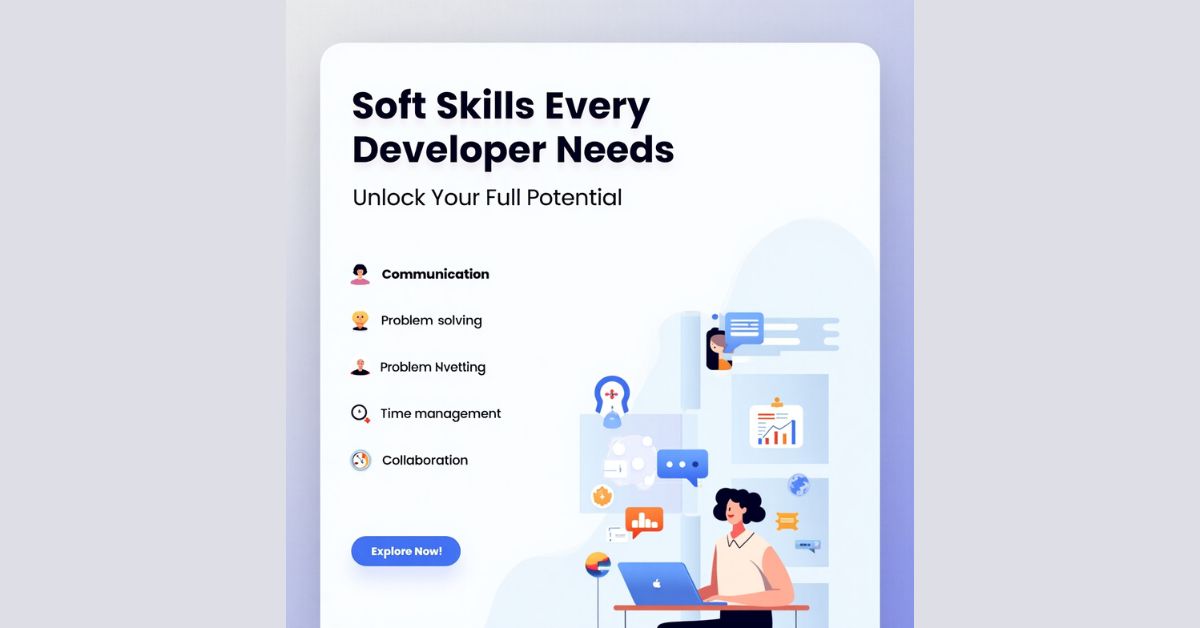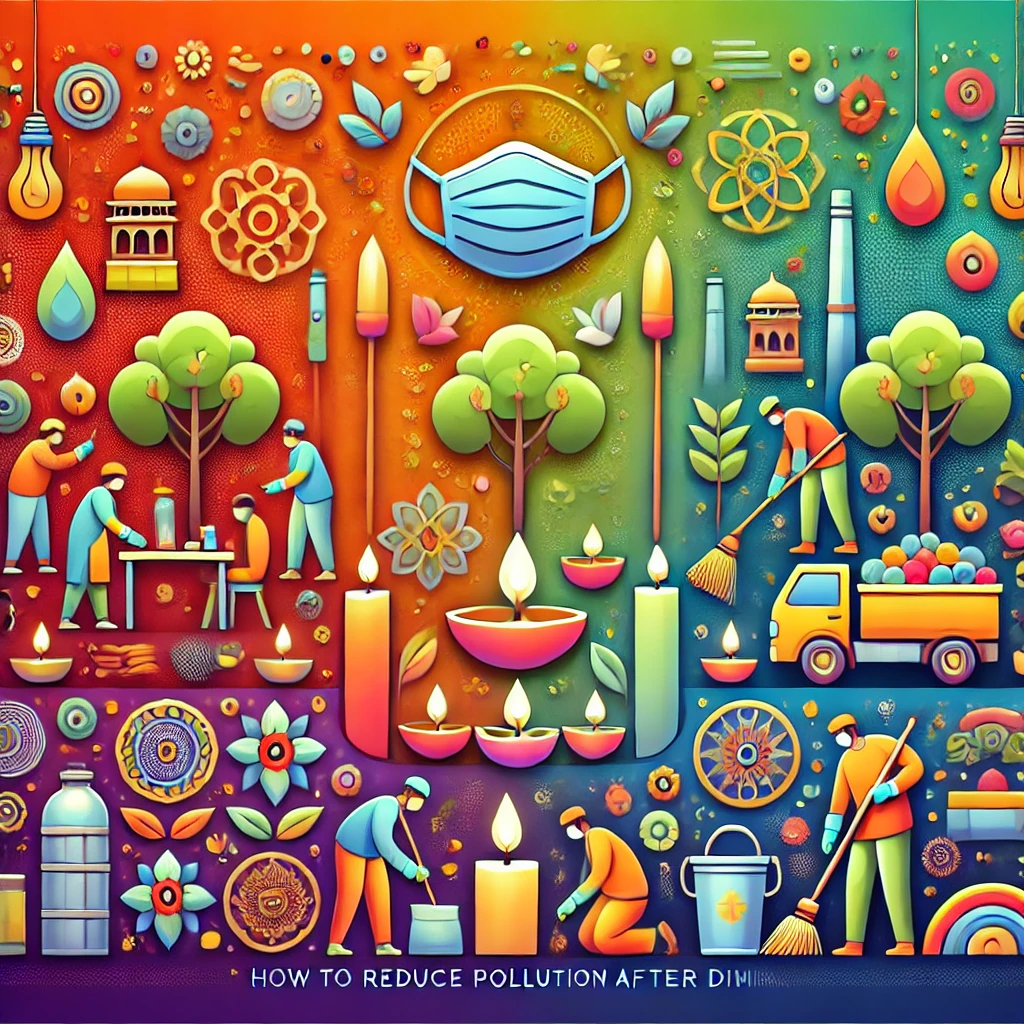Introduction
In the fast-paced world of technology, it’s easy to focus solely on hard skills like programming languages, algorithms, or frameworks. However, in today’s collaborative and multidisciplinary work environment, soft skills have become just as important, if not more so, than technical expertise. For developers, mastering soft skills can lead to more effective communication, better teamwork, and increased career opportunities.
This blog explores why soft skills matter and which ones are most critical for developers to thrive in their careers.
What Are Soft Skills?
Soft skills, often referred to as people skills or interpersonal skills, are non-technical abilities that influence how you interact with others and approach tasks. These skills enable you to communicate effectively, collaborate in teams, manage your time, and solve problems creatively.
While hard skills (like coding or data analysis) are important for any developer, it’s often the soft skills that set the best apart from the rest. Let’s look at the top soft skills that every developer should cultivate.
1. Communication Skills: The Key to Clear Collaboration
Why it matters:
As a developer, you’re rarely working alone. Whether you’re collaborating with product managers, designers, or other developers, being able to communicate your thoughts clearly and listen effectively is essential. Communication helps you understand project requirements, explain technical issues in simple terms, and ensure everyone is aligned toward the same goals.
What you can do:
- Practice active listening during team meetings.
- Work on articulating complex technical concepts in a way that’s understandable to non-technical stakeholders.
- Learn to give and receive feedback constructively.
- Write clear and concise documentation for your code.
2. Problem-Solving and Critical Thinking: More Than Just Debugging
Why it matters:
Developers are essentially problem solvers, and every day presents a new challenge. Critical thinking allows you to approach problems logically and efficiently, whether you’re writing code, optimizing an algorithm, or finding a workaround to a technical constraint. Strong problem-solving skills help you break down complex problems into manageable parts.
What you can do:
- Practice breaking down problems into smaller tasks and prioritize them effectively.
- Develop a growth mindset that encourages learning from mistakes and seeing challenges as opportunities for improvement.
- Stay curious and experiment with alternative solutions to problems.
- Sharpen your debugging skills by tackling problems from different angles.
3. Teamwork and Collaboration: Because Development Is a Group Effort
Why it matters:
In the tech world, you’ll often work with cross-functional teams, including UX/UI designers, product managers, and QA engineers. Your ability to work well in a team will influence project timelines, productivity, and the quality of the final product. Collaborative environments require mutual respect, adaptability, and a focus on achieving collective goals.
What you can do:
- Participate actively in team discussions, contributing ideas and feedback.
- Develop an understanding of how your work fits into the broader context of the project.
- Be flexible and open to compromise—be willing to adjust your approach based on team feedback.
- Respect the perspectives and expertise of others, and collaborate to overcome challenges together.
4. Time Management and Prioritization: Working Smarter, Not Harder
Why it matters:
In a developer’s daily life, there are often multiple tasks and deadlines to juggle. Poor time management can lead to missed deadlines, burnout, and subpar work. Effective time management ensures that you’re focusing on the right tasks, minimizing distractions, and making consistent progress.
What you can do:
- Use task management tools (e.g., Trello, Asana, or Jira) to break down large tasks into smaller, actionable items.
- Prioritize tasks based on urgency and importance (try the Eisenhower Matrix or Pomodoro Technique).
- Set realistic deadlines and track your progress regularly.
- Take breaks and practice time-blocking to prevent burnout.
5. Adaptability and Flexibility: Thriving in a Changing Environment
Why it matters:
The tech landscape is always evolving, and so are the demands of your role as a developer. Whether it’s learning a new framework, adapting to a shifting project scope, or dealing with unexpected bugs, adaptability is key to thriving in the fast-paced world of software development.
What you can do:
- Stay open to learning new technologies and approaches.
- Cultivate the ability to pivot quickly when project requirements change.
- Embrace feedback and iterate on your work.
- Be comfortable with ambiguity and willing to step outside your comfort zone.
6. Emotional Intelligence: Understanding Yourself and Others
Why it matters:
Emotional intelligence (EQ) is the ability to recognize and manage your emotions and the emotions of others. Developers with high EQ can better navigate stressful situations, resolve conflicts, and maintain positive relationships with their teammates. It’s a key skill for leadership and personal growth.
What you can do:
- Practice self-awareness by regularly reflecting on your emotional responses in various situations.
- Learn to manage stress and keep a calm demeanor in challenging situations.
- Develop empathy by considering how your actions or words affect others.
- Build strong interpersonal relationships through trust, respect, and understanding.
7. Conflict Resolution: Turning Challenges into Opportunities
Why it matters:
Disagreements and misunderstandings are natural in any team environment. Developers will inevitably face conflicts—whether it’s about technical decisions, design approaches, or project timelines. Being able to resolve these conflicts constructively and maintain team cohesion is a valuable soft skill.
What you can do:
- Address conflicts early before they escalate.
- Focus on finding common ground rather than “winning” the argument.
- Be open to compromise and find solutions that benefit the team as a whole.
- Keep the conversation respectful and avoid taking disagreements personally.
8. Leadership and Mentorship: Helping Others Succeed
Why it matters:
As you grow in your career, your ability to lead and mentor others becomes more important. Leadership is not just about managing people but also about inspiring and guiding them to success. Being a good mentor allows you to share your knowledge and help others avoid common mistakes.
What you can do:
- Offer guidance and support to junior developers or team members.
- Share your knowledge and encourage continuous learning within your team.
- Lead by example—showing professionalism, dedication, and integrity.
- Build a team-oriented culture where everyone feels valued and motivated.






Leave a Reply